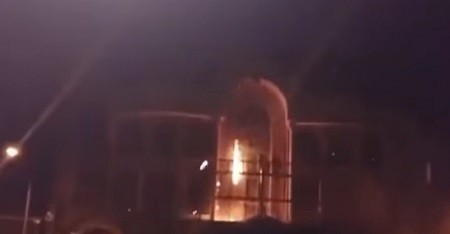
Despite its looming economic woes, the oil rich Kingdom of Saudi Arabia, currently at loggerheads with Iran in a new development, has said it would restore ties with Tehran provided the country keeps out of the affairs of foreign countries including Riyadh.
Saudi Arabia severed ties with Iran over the weekend following the kingdom's execution of a prominent Shi'ite cleric and subsequently the Saudi embassy in Tehran was stormed by protesters. However, Saudi Arabia has promised to continue working to support peace bids in Syria and Yemen despite the present disagreements between the two countries.
According to Reuters, protesters in Iran and Iraq continue to march for a third day to denounce the execution of the cleric. Saudi U.N. Ambassador Abdallah Al-Mouallimi told the news agency that for ties to be restored Iran has to stop interfering.
"Iran needs to cease and desist from interfering in the internal affairs of other countries, including our own," Mouallimi said adding, "If they do so, we will of course have normal relations with Iran. We are not natural-born enemies of Iran."
Following Riyadh's example, countries like Bahrain and Sudan have cut ties with Iran, as well. Saudi Foreign Minister Adel al-Jubeir told the news agency Riyadh will halt air traffic and commercial relations between the unfolding rival powers should the issue progress.
Further, Jubeir blamed Iran's "aggressive policies" for the diplomatic tensions that spilled over the weekend. While the Iranians of the United Arab Emirates (UAE), have partially downgraded its relations with the Kingdom, other Arab countries in the Gulf including - Kuwait, Qatar and Oman have stayed clear of the fray.
Meanwhile, many Saudis according to CNN Money seem to be more concerned over the probable "economic bomb" that can unravel at any moment. As such the Saudi government is slashing perks for citizens.
According to the report the Saudi government is facing a dire cash crunch and has hiked gasoline prices by 50 percent
"They have announced cutbacks in subsidies that will hurt every single Saudi in their pocketbook," former U.S. ambassador to Saudi Arabia, Robert Jordan told the channel.
Jordan who is also the author of "Desert Diplomat: Inside Saudi Arabia Following 9/11," said gas use to cost just 16 cents a liter in Saudi Arabia, with many Saudis driving large vehicles without a care of saving gas.
The former diplomat warned that the increase in gas prices was just the beginning, with water and electricity prices set to also go up, with the government scaling back on roads, buildings and other infrastructure.
Jordan said while the cuts might be normal for any government else where in the world that is running low on cash, the situation is especially problematic in Saudi Arabia as the vast majority of Saudis work in the public sector.
See below Teharan's response to the execution of a prominent cleric



